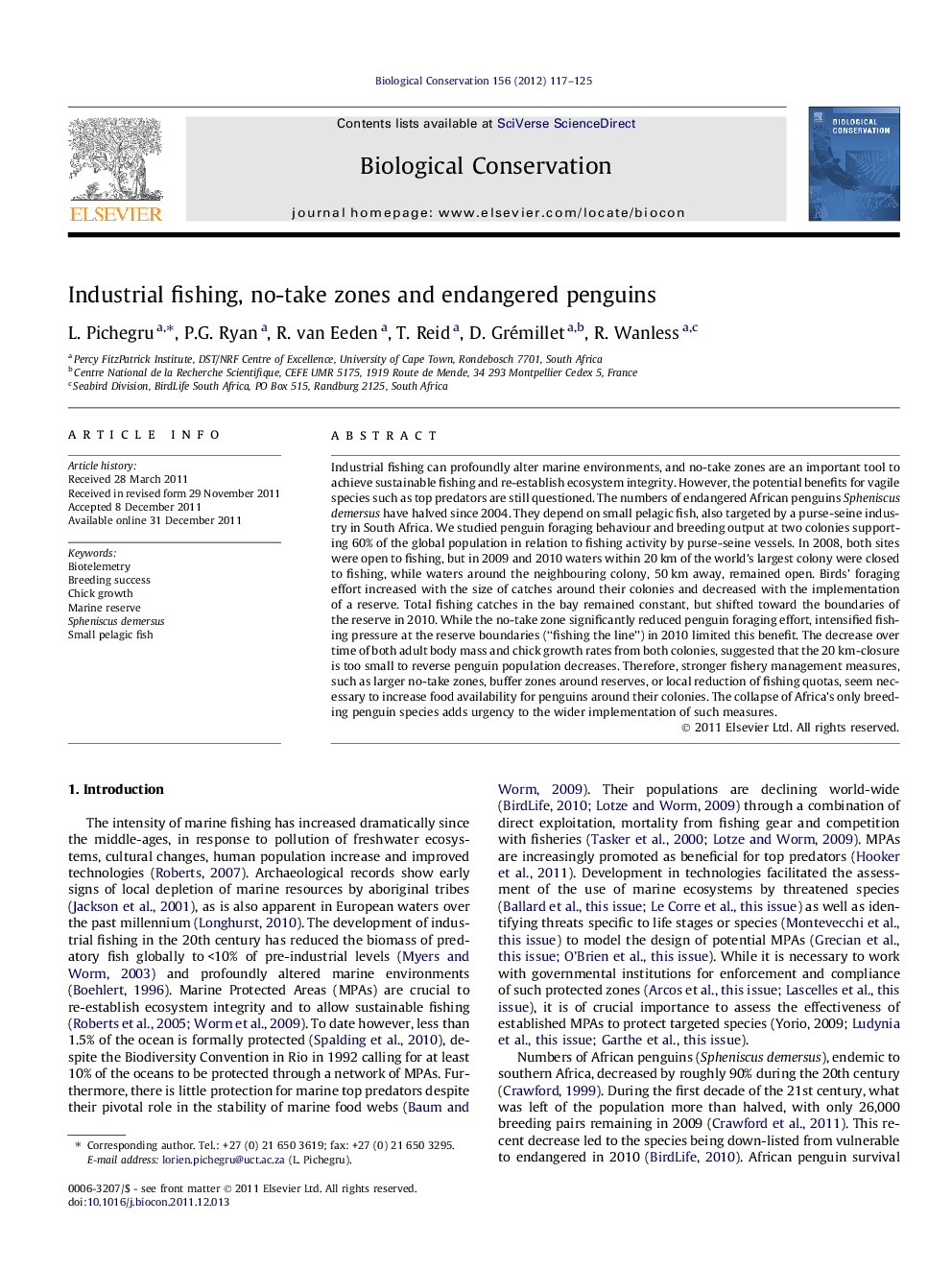| Article ID | Journal | Published Year | Pages | File Type |
|---|---|---|---|---|
| 4385160 | Biological Conservation | 2012 | 9 Pages |
Industrial fishing can profoundly alter marine environments, and no-take zones are an important tool to achieve sustainable fishing and re-establish ecosystem integrity. However, the potential benefits for vagile species such as top predators are still questioned. The numbers of endangered African penguins Spheniscus demersus have halved since 2004. They depend on small pelagic fish, also targeted by a purse-seine industry in South Africa. We studied penguin foraging behaviour and breeding output at two colonies supporting 60% of the global population in relation to fishing activity by purse-seine vessels. In 2008, both sites were open to fishing, but in 2009 and 2010 waters within 20 km of the world’s largest colony were closed to fishing, while waters around the neighbouring colony, 50 km away, remained open. Birds’ foraging effort increased with the size of catches around their colonies and decreased with the implementation of a reserve. Total fishing catches in the bay remained constant, but shifted toward the boundaries of the reserve in 2010. While the no-take zone significantly reduced penguin foraging effort, intensified fishing pressure at the reserve boundaries (“fishing the line”) in 2010 limited this benefit. The decrease over time of both adult body mass and chick growth rates from both colonies, suggested that the 20 km-closure is too small to reverse penguin population decreases. Therefore, stronger fishery management measures, such as larger no-take zones, buffer zones around reserves, or local reduction of fishing quotas, seem necessary to increase food availability for penguins around their colonies. The collapse of Africa’s only breeding penguin species adds urgency to the wider implementation of such measures.
► Small no-take zones around some colonies of endangered African penguins. ► Penguin foraging effort related to size of commercial catches in vicinity of colony. ► No-take zone benefited penguins, but “fishing the line” compromised such benefit. ► However, adult mass and production decreased, closures too small to reverse trends. ► Alarming decrease of African penguin population call for larger fishery closures.
